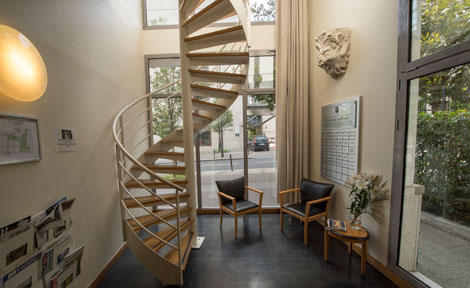The University of Chicago Center in Paris held an interesting conference on "The Democratic State in Trans-Atlantic Context" (20-21 May 2015).
Abstract:
Scholarship on the state has been oddly parochial, focused on the domestic and national scales to the exclusion of the international and transnational. This habit of presuming the nation-state as a bounded container is particularly entrenched in work on the state, understood in Weberian terms that are conceptually insulated from democratic practices. Democracy, in turn, is often taken as an already defined category of regime rather than a quality of political action as it plays out in state-building. By taking both democracy and the nation-state for granted, scholars leave unspecified what should be empirically explained. Even comparative analyses of welfare states, which should be more cosmopolitan, tend to reify national differences by naturalizing the comparative framework rather than by historicizing the mutual constitution of systems of social provision. Recent work by historically-inclined social theorists and students of political economy – including Michel Foucault, Pierre Rosanvallon, Thomas Piketty, to name only a few -- provides scholars of the democratic state with exciting new interpretive questions and tools. During this conference, we hope to advance a transnational conversation with scholars from the U.S. and Europe to interrogate the development of the democratic state in trans-Atlantic context.
Programme:
May 20
Rethinking the State in Trans-Atlantic Context , 9-11:15
Welcome: Elisabeth Clemens (University of Chicago)
- Gary Gerstle (Cambridge University), Introductory remarks
- William Novak (University of Michigan), “Beyond Stateless Democracy”
- James Sparrow (University of Chicago), “The Myth of Stateless Democracy”
- Stephen Sawyer (AUP), “Thinking Democracy beyond the State/Society Divide”
New Directions on the State, 11:30-12:30
- Patrick LeGales (Sciences Po), "The Reconfiguration of the State in Europe : Dynamics and Contradictions"
Moderator: Gary GerstleNew Comparative Approaches, 2-3:30
- Dorit Geva(CEU): How does gender regulate the state? The U.S. in comparative perspective
- Nicolas Barreyre (EHESS) Claire Lemercier (Sciences-Po/CNRS)– "In stark contrast to France"? An Early-Nineteenth-Century French Perspective on the American State
Moderator: Steve SawyerConversation on Weber and the State, 4-5
Led by Philippe Bezes, William Novak, and James Sparrow, Dorit Geva, Gary GerstleModerator: Steve SawyerMay 21
State and Society, 9-11
- Romain Huret (EHESS): "Tax Justice in a Democratic State? The case of the Andrew W. Mellon trial for tax evasion (1933-1941).
- Jean-Christian Vinel (Université Paris-Diderot), "A Victory Through the State: The Business Battle for Managerial Loyalty, 1938-2006"
- Pauline Peretz, Thomas Grillot, and Yann Philippe (CENA, EHESS): "Can the state be a pioneer? The case of the desegregation of Veterans Administration hospitals (1944-1964)"
Moderator: James SparrowVoluntarism, Civil Society and the State, 11:15-12:45
- Elisabeth Clemens (University of Chicago): Civic Gifts: Benevolence and Voluntarism in the Making of the American Nation-State.
- Clarisse Berthezene (Paris-Diderot): State, voluntary action and social welfare : political parties and the mobilization of women in Britain 1929-1951.
Moderator: Alain ChatriotAdministrative State, 2-4
- Marc Olivier Baruch (EHESS-CRH), "La fonction la plus importante et la plus noble qui soit dans l'ordre temporel, le service de l'Etat", French State Elites and Gaullism since 1940
- Alain Chatriot (CNRS-CRH), "This a good exemple of the exuberance with which administrative plants will grow", The French State during the First World War.
- Emilien Ruiz (Docteur EHESS), "The answer is "Too many civil servants", but what exactly was the question? The number of state employees and its perception in France from 1850 to 1950. (This paper will be delivered in French with an English powerpoint)
Moderator: Elisabeth ClemensConversation: How Globalization Made States? Public Authority, Private Capital, and Local Networks in the Nineteenth Century
- Nicolas Delalande (Sciences Po): "State Power, International Reputation, and Public Credit in the Age of the First Globalization (c. 1850-1914)"
- Stephen Sawyer (AUP): "Amended Federalism: Global and Local Pressures in Nineteenth-Century Statecraft, 1860-1890"
- Quentin Deluermoz (Paris 13/IUF): “Local Event, Global Effect? The Paris Commune and the strengthening of State Power, 1871-1880”
Moderator: William NovakFor more information on the State as History and Theory Project see:
Source: calenda.


No comments:
Post a Comment